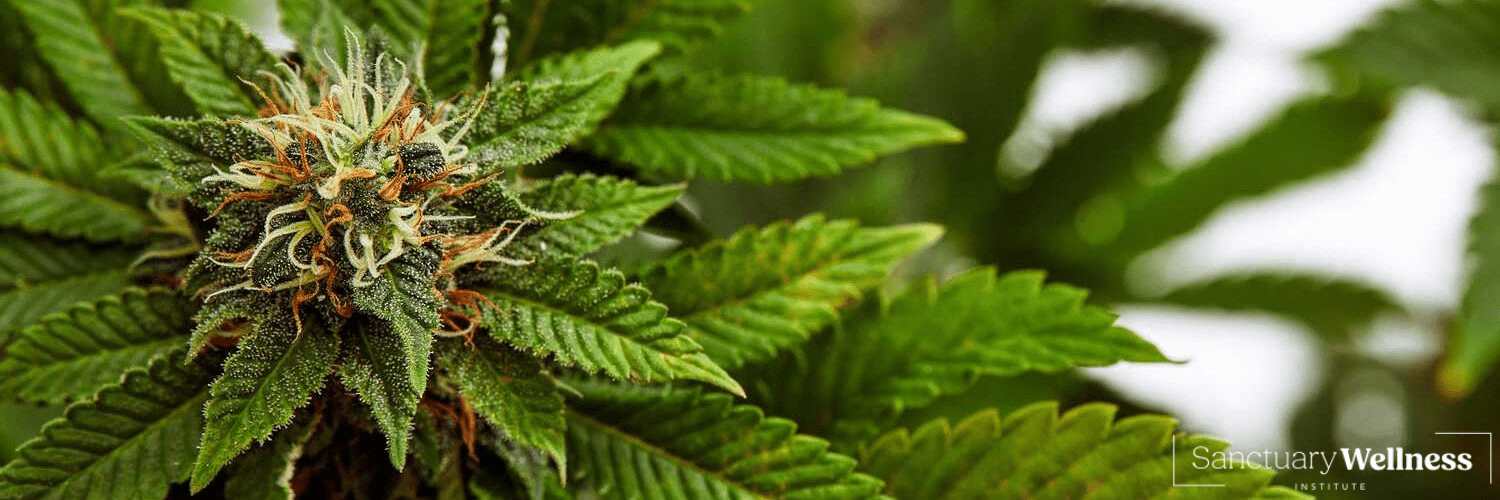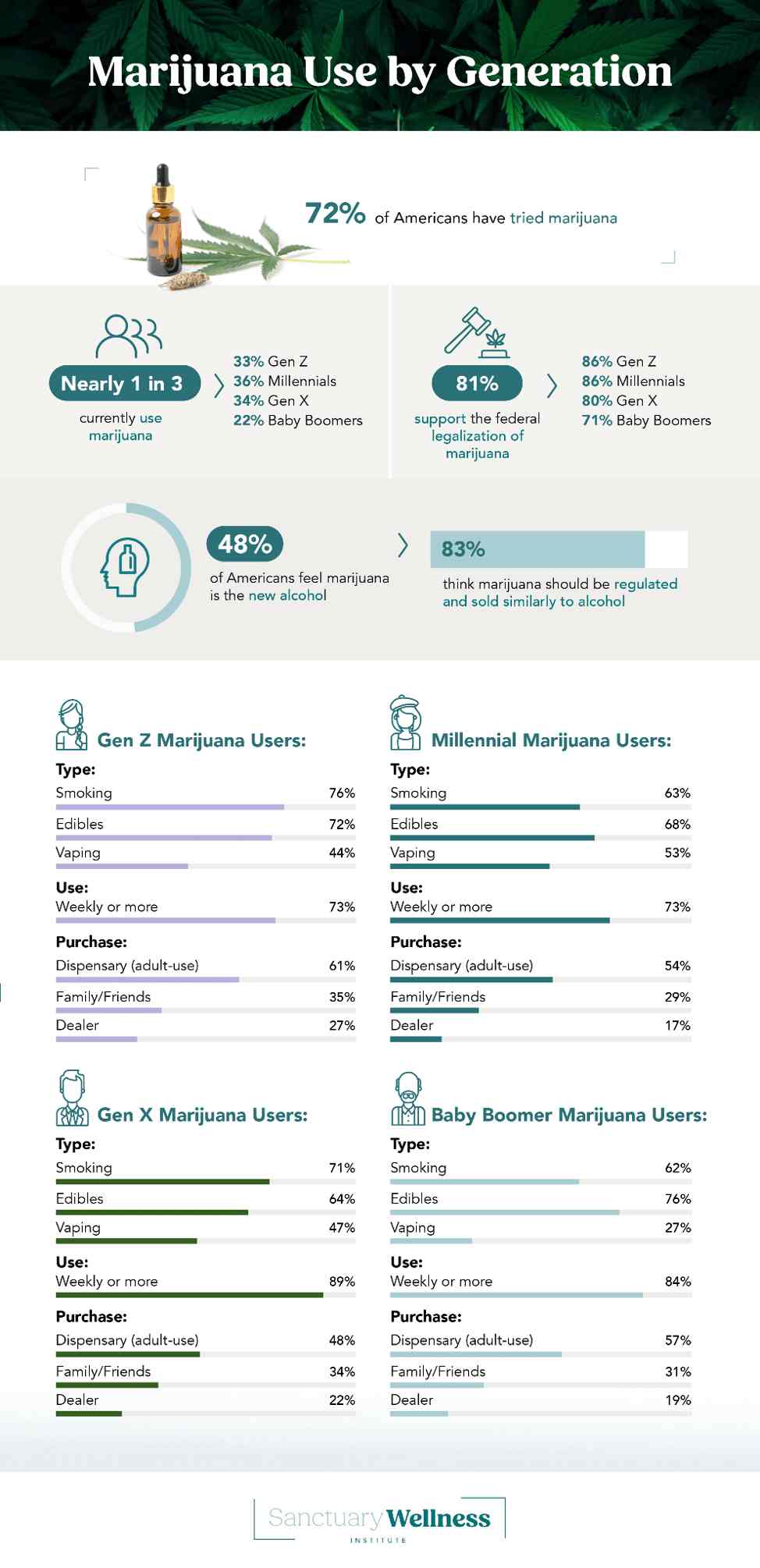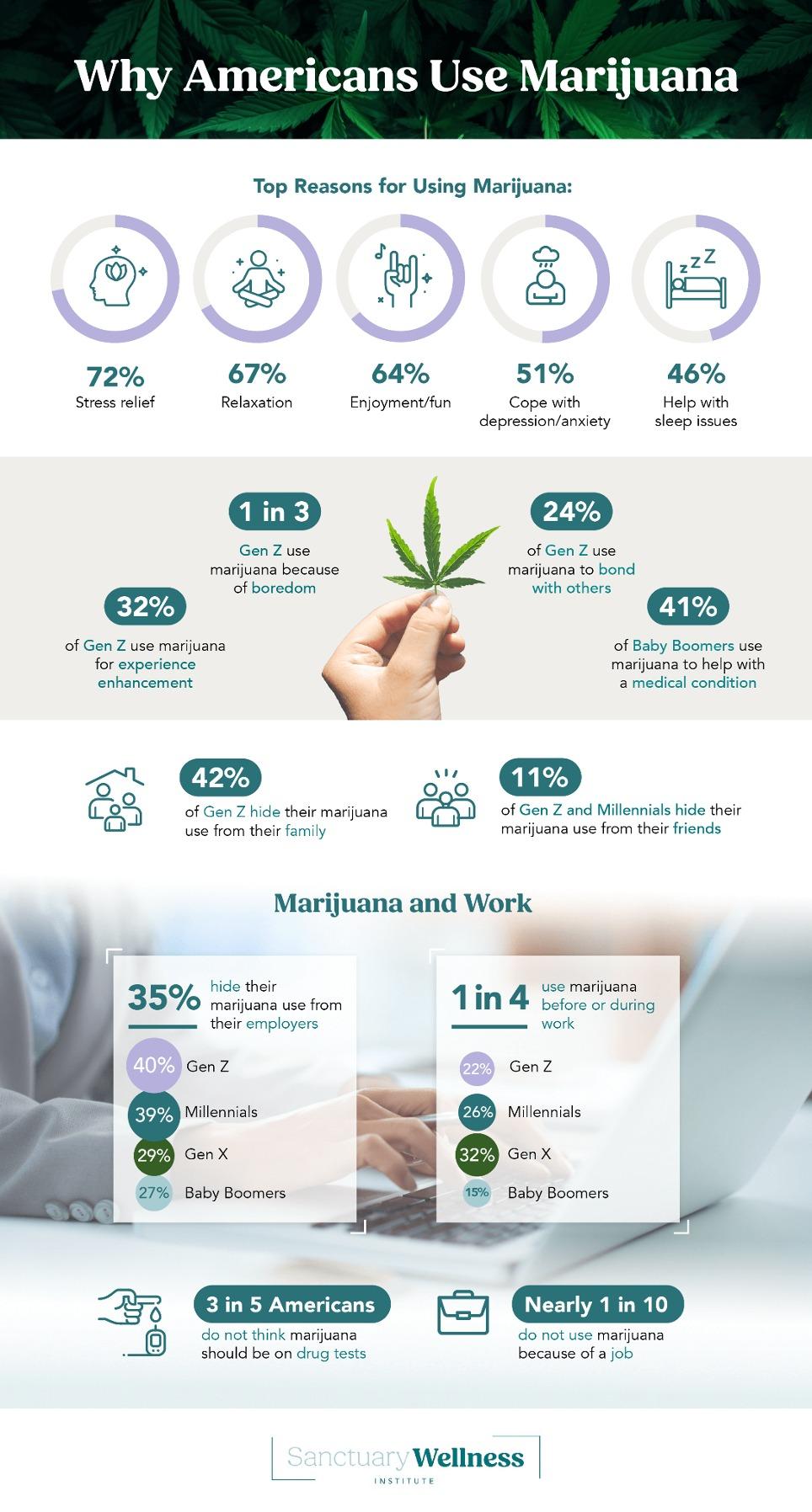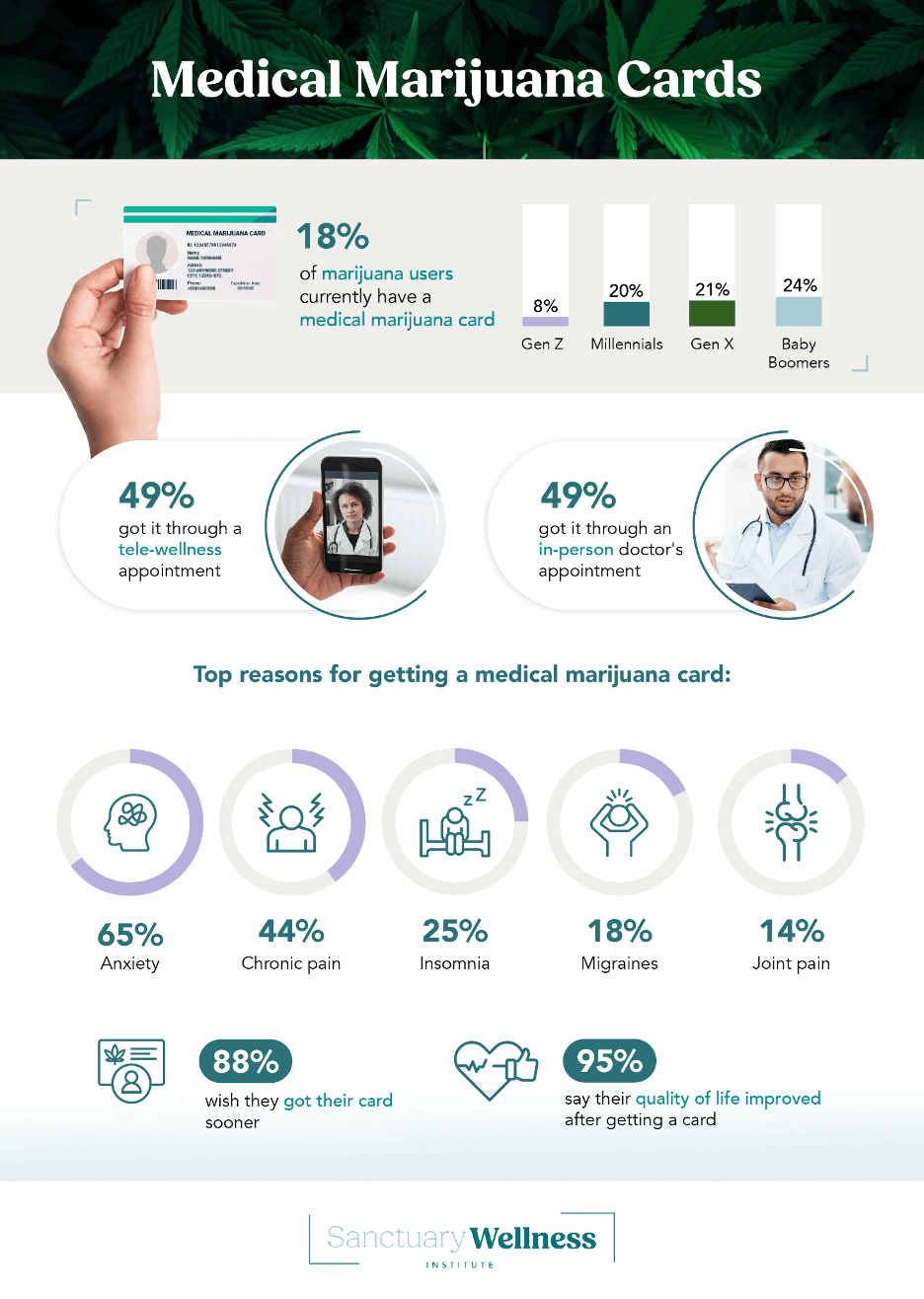Marijuana Use by Generation: 72% of Americans Have Used Marijuana
- Elizabeth DiBella
- Published: September 3, 2024
- Fact-checked by Dr. Desiree Granados

Perceptions surrounding marijuana are changing. As legal restrictions are easing across the nation people are thinking about the drug differently and this shift is not limited solely to younger generations. New survey data reveals that 94% of Americans think marijuana is more socially acceptable in 2024, and nearly half (48%) think marijuana is the new alcohol.
The survey of 1,000 Americans 18 years and older found that nearly 3 in 4 (72%) have used marijuana at some point in their lives. Currently, 1 in 3 (32%) adults use marijuana, and of those, 89% use it monthly or more. From Gen Z to Baby Boomers, cannabis consumption among generations varies from how and why it’s used to even where they get it from.
How Many Americans Use Marijuana?

Whether Americans use marijuana or not, 81% support the federal legalization of the drug. Gen Z and Millennials are most supportive of legalizing it while Baby Boomers are the least supportive across generations.
Currently, 36% of Millennials use the drug followed by 34% of Gen X, 33% of Gen Z, and 22% of Baby Boomers. Of those who took our survey, 36% of cannabis users live in states where it’s not legal to use marijuana.
Americans are split across generations on their preferred way to use marijuana. Gen Z and Gen X are more likely to smoke it while Millennials and Baby Boomers prefer to consume edibles. When it comes to vaping, Millennials vape the most, followed by Gen X and Gen Z.
Interestingly, the generation using marijuana the most frequently is Gen X, with 89% using it weekly or more. While cannabis users mainly get the drug from adult-use dispensaries, the second most common way is from family and friends. Across all generations, Gen Z is most likely to use a dealer, with 27% choosing dealers over legal avenues.
A surprising discovery is that 38% of Gen Z marijuana users think marijuana today is too strong. That’s a higher percentage than all other generations. Only 13% of Gen X think it’s too strong, 19% of Baby Boomers feel that way as do 22% of Millennials. It could be because Gen Z marijuana users are still experimenting with the drug and learning how to determine things such as the right edible dosage. While dispensary edibles tend to be accurately dosed, those purchased from a dealer can be variable and generally have much higher doses.
Why do People Use Marijuana?

The top five reasons Americans use marijuana are:
- Stress relief
- Relaxation
- Enjoyment/fun
- Coping with depression/anxiety
- Help with sleep issues
1 in 3 Gen Z marijuana users use it because they’re bored, and 32% say they do it to enhance their experience at activities like concerts. Meanwhile, over 2 in 5 (41%) Baby Boomers use cannabis to help with a medical condition.
“Stress and mental health are the most common complaints by far among all patients,” explains Dr. Melissa Morgan, a preventative medicine physician with the Sanctuary Wellness Institute. “Patients over 55 years old do more commonly present with chronic pain complaints, but their primary treatment goal typically revolves more around mental health issues.”
While Americans believe marijuana is more socially acceptable, some users keep what they do under the radar. Over 1 in 10 (11%) Gen Z and Millennials hide their marijuana use from friends, and 42% of Gen Z hide it from their family.
When it comes to work, statistics show that 35% of cannabis users don’t tell their employers about it. However, work doesn’t keep some from using the drug with nearly 1 in 4 (24%) using marijuana before or during work. Gen Xers are most likely to do this followed by Millennials.
Nearly 1 in 10 (9%) Americans don’t use marijuana because of a job requirement. But there are other reasons why people refrain from using marijuana. For most, there’s no interest, though others cite health, anxiety, paranoia, and the cost of cannabis.
Medical Marijuana Card Statistics

Survey data shows about 1 in 6 (18%) cannabis users currently have a medical marijuana card. The oldest generation, Baby Boomers, are most likely to have a card followed by Gen Xers. Nearly half of survey respondents obtained it after doing a tele-wellness appointment, and 49% received a card from an in-person doctor’s appointment.
The main reason Americans seek a medical marijuana card is to help with anxiety, chronic pain, and insomnia. Americans who have gotten a medical marijuana card say it’s overwhelmingly helped their lives, with 95% saying their quality of life improved.
“Patients with medical marijuana cards get discounted marijuana purchases, “explains John Dibella, the CEO of Sanctuary Wellness Institute. “The process to get a card often involves meeting with a doctor virtually or in person and going over your symptoms. Appointments generally take no longer than 10-15 minutes.”
With marijuana becoming more accessible in locations across the U.S., generations are altering the way they think and feel about it. The drug is no longer just something people smoke, but something that can be experienced through an edible, tincture, or even applied topically. As legality around it shifts and the cannabis industry expands, perceptions of people both young and old appear to be changing too.
Methodology
In May 2024, we surveyed 1,017 people about their perceptions of marijuana and habits (if they use it). 25% were Baby Boomers, 25% were Gen X, 25% were Millennials, and 25% were Gen Z. Respondents ranged in age from 18 to 78 with an average age of 44. 44% were men, 54% were women, and 2% were non-binary or would rather not say.
For media inquiries, please contact media@digitalthirdcoast.net.
Fair Use
When using this data and research, please attribute by linking to this study and citing sanctuarywellnessinstitute.com
States Where We Offer Medical Marijuana Card Services
Other Posts About Medical Marijuana
No Layout Found

Beth received her Bachelor’s Degree in English from Penn State University in 1991. Since then she has been a serial entrepreneur, starting, building and selling businesses which grew organically out of her own interests. As co-founder of The Sanctuary Wellness Institute, she strives to share her joy of being human in what she knows to be a fascinating natural world in hopes of inspiring others toward that same wonder and awe.

